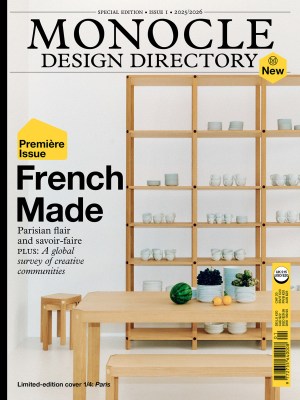
Issue 127
Monocle’s autumn fashion special has arrived. Among numerous stylish features we delve deep into the story of Comme des Garçons, shedding light on how fashion’s most idiosyncratic empire is run. We also find out who owns the weather, pull up a pew with Nicola Sturgeon and preview a season of cultural delights.
In This Issue
Oops! No content was found.
Looks like we no longer have content for the page you're on. Perhaps try a search?
Return Home

